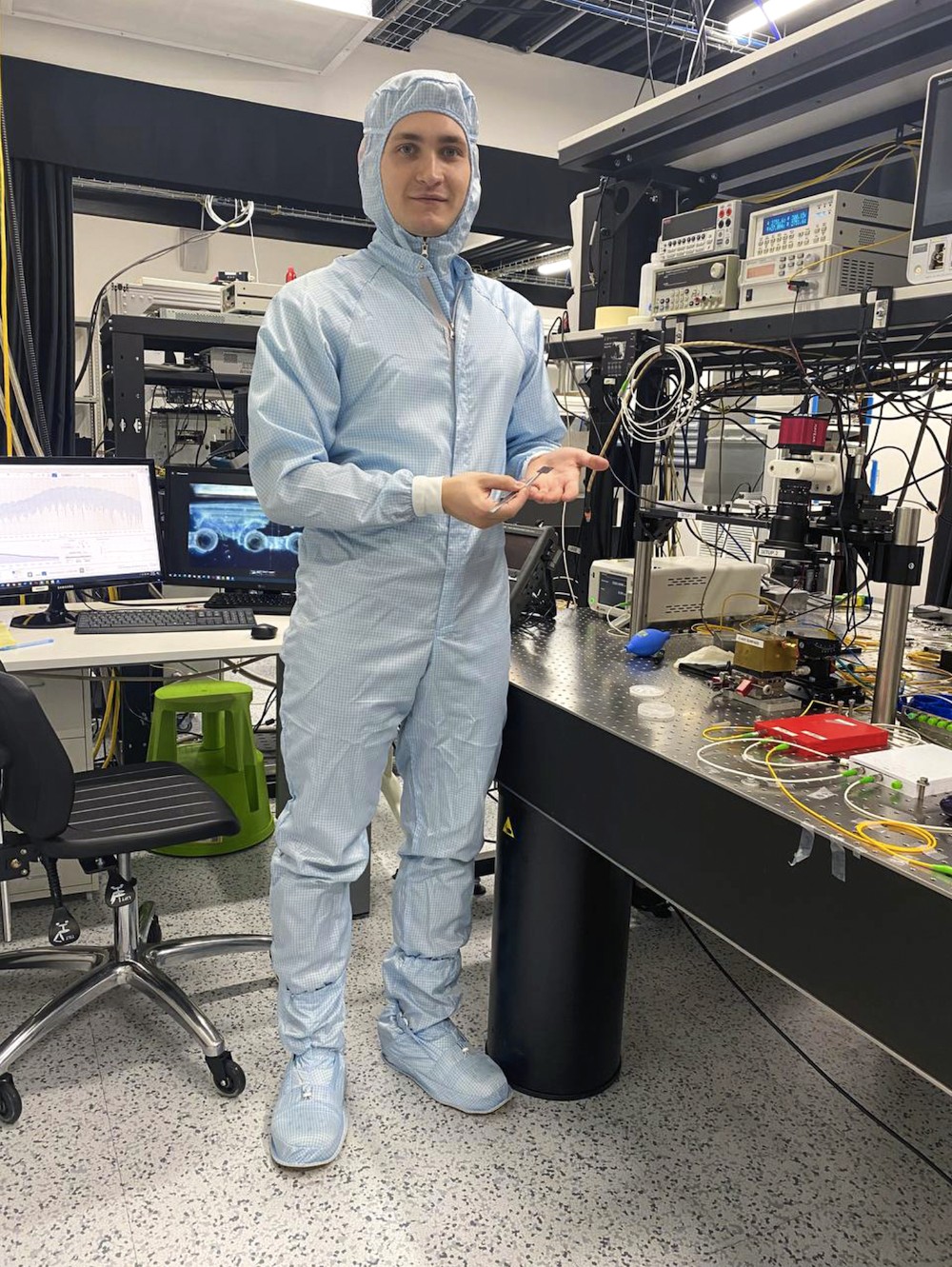How a new technique can help prevent the development of a dangerous disease
By Andrei Korshunov, Izvestia
Russian scientists have proposed a new promising rapid way to diagnose breast cancer. It will spot the disease based on a blood test that takes between 15 and 20 minutes. The solution can be adapted to spot other diseases, too. Once that is accomplished, it could even enable simultaneous screening for multiple diseases. In further developing the method, its creators will have to consider its affordability and compatibility with the medical equipment routinely used in clinics, experts noted.
Skoltech researchers and their colleagues from MISIS University, [V.I. Kulakov National Medical Research Center for Obstetrics, Gynecology and Perinatology,] and Shemyakin-Ovchinnikov Institute of Bioorganic Chemistry of the Russian Academy of Sciences have developed methods for diagnosing breast cancer markers on a very short time frame: within 15 to 20 minutes. Importantly, the solution requires a very small blood sample.
According to its creators, supersensitive systems such as the one presented in the study will allow the disease to be spotted early on. This will ensure there is enough time to avert dire consequences and will enable treatment efficiency to be assessed.
The blood test runs on a microchip, which spots biomarkers of the disease. These are bubbles 20 to 150 nanometers in size, known as small extracellular vesicles (sEVs). They are involved in transporting substances and communication process between cells in the body. Present in the blood and other bodily fluids, sEVs contain various kinds of molecules that indicate breast cancer and its progression depends on their concentration.
As the authors [of the paper in Applied Physics Letters] explained, the currently used approach to measuring sEVs level relies on costly antibodies produced in animals. This conventional method is therefore expensive and also time-consuming, because of the bodily fluid preparation involved. Further complications result from antibodies being unstable. The new solution provides an alternative.
“To determine vesicle concentration, our solution uses photonic microsensors. These are microchips where signals are carried by photons, the light particles. The fluid to be analyzed passes along a channel of an extremely small diameter, whose wall is treated with special ‘target’ molecules [DARPins] in the region where the microfluidic channel intersects with the waveguide carrying light. The vesicles passing by stick to those molecules, and the more of them there are, the more they affect the way light travels along the waveguide. This effect can be measured,” one of the technique’s creators, Skoltech PhD student Aleksei Kuzin, explained.

Study co-author and Skoltech PhD student Aleksei Kuzin posing next to a measurement stand. He is holding the photonic chip that is the sensing component in the new diagnostic platform. Credit: Aleksei Kuzin/Skoltech
According to the researcher, the advantage of the approach is that the molecules deposited on microchannel walls are smaller and cheaper than antibodies, and the photonic integrated circuits have a fairly straightforward design. This will enable their mass production down the road. The new technique for breast cancer screening could make the procedure more affordable and widely available.
Kuzin explained that the microtubes in the device are washable and the active layer of the sensor can be redeposited for repeated use.
Study co-author Vasiliy Chernyshev — a senior research scientist at Skoltech and the head of the Biophotonics Laboratory at Kulakov National Medical Research Center for Obstetrics, Gynecology and Perinatology — added that biomarkers similar to vesicles could serve to diagnose other diseases, too.
This makes the new technique scalable. In the future, the device could be used in screening tests for multiple pathologies. Also, as the technology is enhanced the capacity to analyze other bodily fluids, such as urine, could be added.
The findings of the study are reported in a high-impact Nature-indexed journal. The scientists are preparing to file for a patent on their invention.
“Breast cancer diagnostics is an actively developing area of Russian health care. The main advantages of the newly proposed method are the rapid test results, the small amount of biological fluid required, and the capacity for repeated use,” said Senior Research Scientist Irina Shipunova of the National Medical Research Center of Hematology under the Ministry of Health of Russia.
She finds that the test’s simplicity makes it fit for use during routine medical checkups. With more cases identified at an early stage and an adequate response, the ultimate number of favorable outcomes will increase.
That said, it is possible that even if the microchip itself proves fairly inexpensive, the analyzing device that will carry it could end up being expensive and could require highly qualified operators.
“Using biophotonics to detect oncomarkers, and tumor-specific microvesicles in particular, is a promising approach. Such solutions could make tests faster,” said Albert Rizvanov, the head of the Personalized Medicine Center of Excellence at Kazan Federal University.
However, the expert pointed out, vesicles are not always exclusively associated with cancer. All cells constantly produce them in amounts that vary with the state of the organism, for example, depending on whether the person is feeling well and what they’ve been eating. So particular care is required in applying the method, so as not to get a false positive or a false negative result.
Rizvanov added that health care is a conservative industry where it is often not the best but rather the most infrastructurally convenient solutions that win. They rely on existing hardware and require no personnel retraining. This factor has to be considered in developing new medical techniques and equipment.
This story originally came out on iz.ru (Izvestia), in Russian. The study reported in the story was published in Applied Physics Letters and supported by Russian Science Foundation grant Nos. 23-13-00035 and 23-79-00056, as well as Grant No. FSME-2022-0008 of the Ministry of Science and Higher Education of Russia.
Contact information:
Skoltech Communications
+7 (495) 280 14 81
